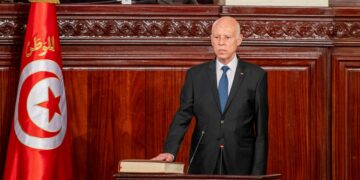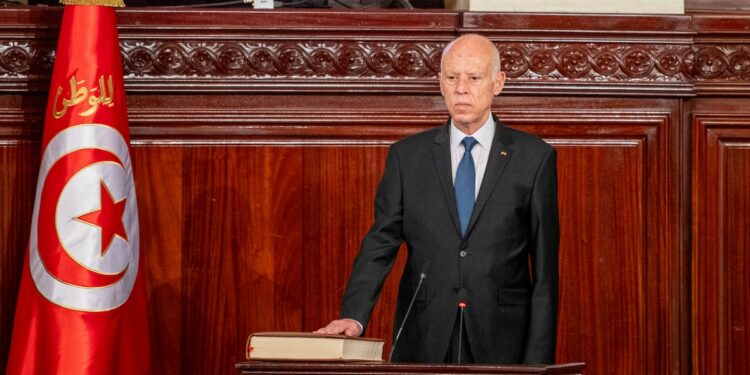By Enyichukwu Enemanna
Weeks after his controversial win with a 90.7% share of the vote, Kais Saied, a 66-year-old former law professor of law has been inaugurated for a second term in office as President of Tunisia.
The leader of the North African country in his inauguration speech called for a “cultural revolution” to combat unemployment, fight terrorism and root out corruption.
“The aim is to build a country where everyone can live in dignity,” Saied said in a speech addressing members of Tunisia’s Parliament.
His re-election on October 7 came after a turbulent first term during which he suspended the country’s Parliament, rewrote its post-Arab Spring constitution and jailed dozens of his critics and political opponents, members of the media and civil society organizations.
He has justified elements of the crackdown as necessary to fight corruption and enemies of the state.
Saied came to power in 2019 when democracy was believed to have stabilized in the country.
He predecessors ruled after pro-democracy nationwide protests in the country, popularly called the Arab Spring led to the ouster of autocratic leader, Zine El Abidine Ben Ali who ruled for 20 years.
Saied promised to target the “thieves and traitors on the payroll of foreigners” and blamed “counter-revolutionary forces” for obstructing his efforts to buoy Tunisia’s struggling economy throughout his first term in office.
“The task was not easy. The dangers were great,” he said. “The arms of the old regime were like vipers circulating everywhere. We could hear them hissing, even if we couldn’t see them.”
Though Saied proclaimed a commitment to respecting freedoms, many journalists were prevented from covering his swearing-in on Monday.
This attracted criticism from the National Syndicate of Tunisian Journalists, which expressed “its firm condemnation of the ongoing blackout policy and restrictions on journalistic work” in a statement.
Before the election, several opposition political figures were either jailed or disqualified from standing for the poll.




































